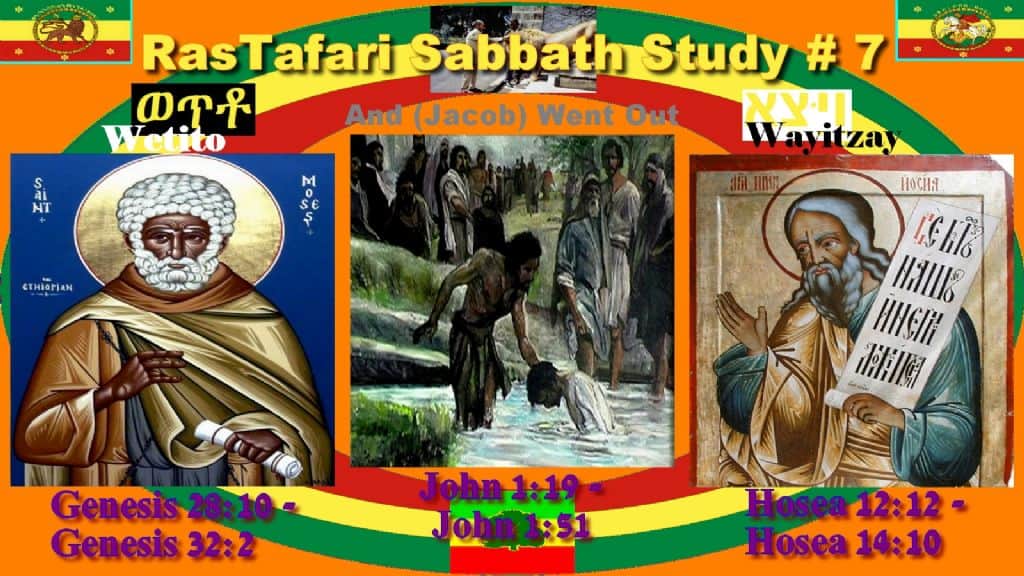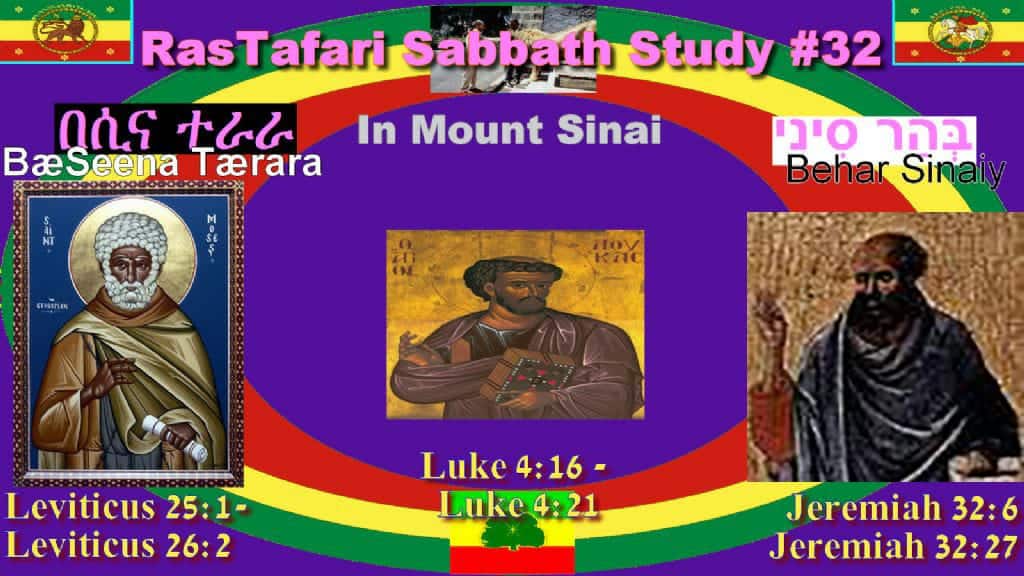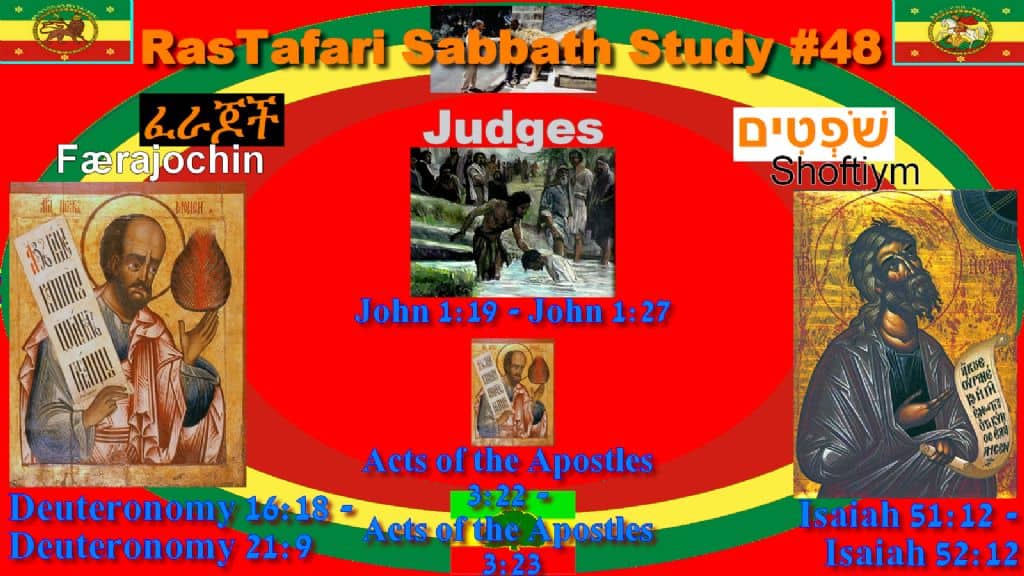This Week's Portion #37
Shelach Lekha | שְׁלַח-לְךָ | "Send for yourself!" ላክ ትልካላችሁ | Lakk t’l’kalach’hu [tilkalachihu]
*For a PDF version of All the Torah Portions Schedule, click here to download!
2. Prophets Reading
Joshua 2:1-2:24
3. New Testament Reading
Hebrews 3:7-4:1
Portion Outline - TORAH
- Numbers 13:1 | Spies Sent into Canaan
- Numbers 13:25 | The Report of the Spies
- Numbers 14:1 | The People Rebel
- Numbers 14:13 | Moses Intercedes for the People
- Numbers 14:26 | An Attempted Invasion is Repulsed
- Numbers 15:1 | Various Offerings
- Numbers 15:32 | Penalty for Violating the Sabbath
- Numbers 15:37 | Fringes on Garments
Portion Outline - PROPHETS
- Joshua 2:1 | Spies Sent to Jericho
Portion Study Book Download & Summary
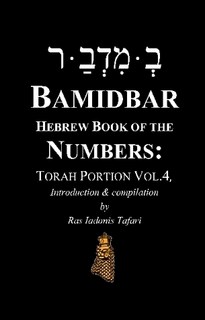 BAMIDBAR Hebrew Book of Numbers - Torah Portion Vol.4 (FREE PDF)
BAMIDBAR Hebrew Book of Numbers - Torah Portion Vol.4 (FREE PDF)
The thirty-seventh reading from the Torah is called Shelach (שלח), an imperative verb that means “send out.” The portion is so named from the first few words of the second verse: “Send out for yourself men so that they may spy out the land of Canaan” (Numbers 13:2). The Torah reading tells the tragic story of how the spies returned with a bad report about the Land of Promise and influenced the congregation of Israel to rebel against the LORD. Thus God consigned the generation of Moses to wander in the wilderness for forty years.
Portion Commentary
The Law and the Gentiles
Thought for the Week:
Our Master Yeshua kept all the commandments. If we desire to imitate Him in discipleship, it would behoove us to walk in obedience to the same laws that He did.
A pupil is not above his teacher; but everyone, after he has been fully trained, will be like his teacher. (Luke 6:40)
Commentary:
There is to be one law and one ordinance for you and for the alien who sojourns with you. (Numbers 15:16)
The Torah says there is to be only one law for both Jews and aliens sojourning with the Jewish people. Most Gentile Christians do not keep the Torah's ritual laws: Sabbaths, festivals, dietary laws and ritual symbols like wearing tassels, phylacteries, or putting up a mezuzah scroll on the doorpost. This does not mean that Gentile Christians are godless or even lawless. Jewish believers are certainly bound to keep the whole Torah, but Gentile believers have never felt bound to the Torah's external signs in the way that Jews are. After all, Jews should be Jews and Gentiles should be Gentiles.
But does the Torah really make different laws for Jews and Gentiles? According to Numbers 15:15-16, there is to be only one law for both Jews and Gentiles:
As for the assembly, there shall be one statute for you and for the alien who sojourns with you, a perpetual statute throughout your generations; as you are, so shall the alien be before the LORD. There is to be one Torah and one ordinance for you and for the alien who sojourns with you. (Numbers 15:15-16)
This seems simple enough. According to these verses, there is one law for both Jews and Gentiles. Therefore, Gentile believers should keep the whole Torah. One might suppose that the Gentile believers who were fellowshipping in the apostolic communities should fit into the category of "the alien who sojourns with you." When the apostles considered this question in Acts 15, they left the matter open. They gave the Gentile believers four minimum standards for fellowship within the Jewish synagogue communities, but they did not issue a mandate clarifying Gentile obligation to the whole Torah.
The same open posture of Acts 15 seems to be reflected in the Didache. The Didache is allegedly a collection of apostolic instructions for Gentile believers. When discussing the question of how much Torah a Gentile is obligated to keep, the Didache recommends keeping all of it, but leaves the matter up to an individual's capacity:
If you are able to bear all the yoke of the Lord [i.e., Torah], you will be perfect; but if you are not able, do as much as you are able to do. (Didache 6:2)
The Didache agrees with Numbers 15:15-16. There is not supposed to be a different Torah for Gentile believers. The Gentile believers are not supposed to have a different type of worship or religion. There is only one Torah for God's people. The only question left open is to what extent the Gentile believer is obligated. At First Fruits of Zion we push the envelope and choose to err on the side of obedience to God. There is life and reward in God's commandments. The more we apply the commandments, the more life we experience. Therefore, we encourage all believers to "go all the way!" You can't go wrong by being too obedient to God.

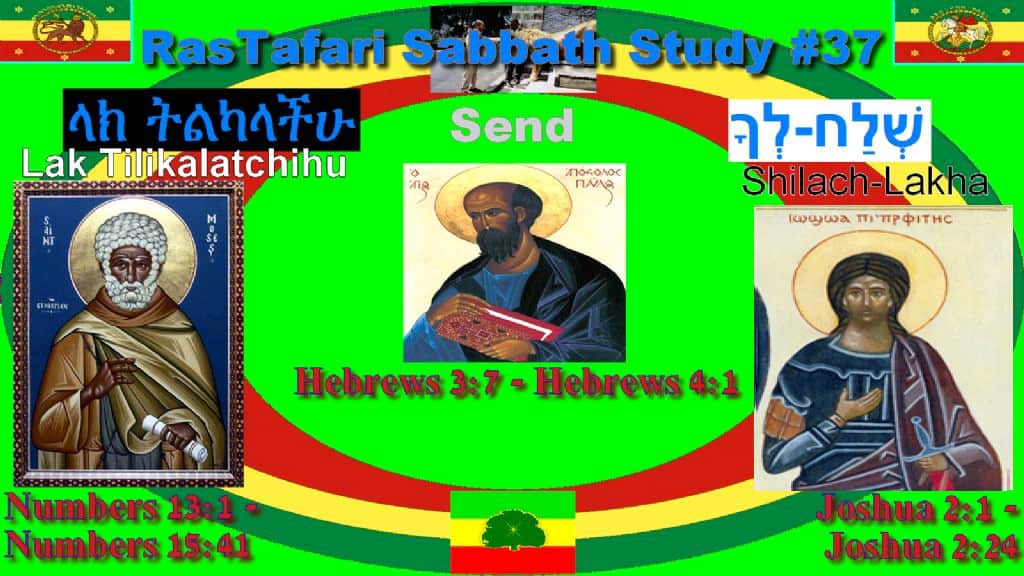
![Shelach Lekha | שְׁלַח-לְךָ | "Send for yourself!" ላክ ትልካላችሁ | Lakk t’l’kalach’hu [tilkalachihu] Shelach Lekha | שְׁלַח-לְךָ | "Send for yourself!" ላክ ትልካላችሁ | Lakk t’l’kalach’hu [tilkalachihu]](https://lojs.org/wp-content/uploads/2020/06/Discipleship-Radi0-RasTafari-Bible-Readings-37_2-1.jpg)
![Shelach Lekha | שְׁלַח-לְךָ | "Send for yourself!" ላክ ትልካላችሁ | Lakk t’l’kalach’hu [tilkalachihu] Shelach Lekha | שְׁלַח-לְךָ | "Send for yourself!" ላክ ትልካላችሁ | Lakk t’l’kalach’hu [tilkalachihu]](https://lojs.org/wp-content/uploads/2020/06/Discipleship-Radi0-RasTafari-Bible-Readings-37_2-2.jpg)
![Shelach Lekha | שְׁלַח-לְךָ | "Send for yourself!" ላክ ትልካላችሁ | Lakk t’l’kalach’hu [tilkalachihu] Shelach Lekha | שְׁלַח-לְךָ | "Send for yourself!" ላክ ትልካላችሁ | Lakk t’l’kalach’hu [tilkalachihu]](https://lojs.org/wp-content/uploads/2020/06/Discipleship-Radi0-RasTafari-Bible-Readings-37_2-3.jpg)
![Shelach Lekha | שְׁלַח-לְךָ | "Send for yourself!" ላክ ትልካላችሁ | Lakk t’l’kalach’hu [tilkalachihu] Shelach Lekha | שְׁלַח-לְךָ | "Send for yourself!" ላክ ትልካላችሁ | Lakk t’l’kalach’hu [tilkalachihu]](https://lojs.org/wp-content/uploads/2020/06/Discipleship-Radi0-RasTafari-Bible-Readings-37_2-4.jpg)
![Shelach Lekha | שְׁלַח-לְךָ | "Send for yourself!" ላክ ትልካላችሁ | Lakk t’l’kalach’hu [tilkalachihu] Shelach Lekha | שְׁלַח-לְךָ | "Send for yourself!" ላክ ትልካላችሁ | Lakk t’l’kalach’hu [tilkalachihu]](https://lojs.org/wp-content/uploads/2020/06/Discipleship-Radi0-RasTafari-Bible-Readings-37_10.jpg)
![Shelach Lekha | שְׁלַח-לְךָ | "Send for yourself!" ላክ ትልካላችሁ | Lakk t’l’kalach’hu [tilkalachihu] Shelach Lekha | שְׁלַח-לְךָ | "Send for yourself!" ላክ ትልካላችሁ | Lakk t’l’kalach’hu [tilkalachihu]](https://lojs.org/wp-content/uploads/2020/06/Discipleship-Radi0-RasTafari-Bible-Readings-37_12.jpg)

